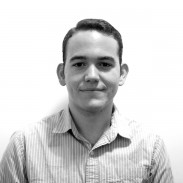As Cuba inches closer to reform, the U.S. government should look to dissidents as the potential agents of change in Cuba. In recent years, the Cuban regime has passed a series of economic and immigration policies meant to liberalize the country. Foreign governments and media outlets have looked to these reforms as promising indicators of change. Nevertheless, the economic reforms simply legalize a pre-existing black market. Similarly, immigration reforms have only eliminated one of the many barriers that impede Cubans from traveling outside of the island; this policy does not address the underlying issues of why Cubans feel compelled to leave their country. We must then turn to Cuban dissidents as meaningful agents of political, social, and economic reform. The U.S. government should form closer ties with these advocates of democracy and accept their opinions as a preview of future Cuban politics.
For the past fifty-four years, the Cuban government has proven unwilling and unable to pursue political reforms. We see most political developments occurring in the hands of small groups of citizens, dubbed dissidents by the Cuban government. Some have labored for years to bring about social reforms even at the cost of their lives. Less than a year ago, Oswaldo Payá lost his life in what the government labeled a car accident, contrary to the accounts of the car’s driver. His ambition consisted of legally reforming the Cuban politics, which he attempted in the 1990s by collecting over 10,000 signatures for the Varela Project. Although it called for fundamental freedoms and human rights, the government only became more authoritarian.
Other groups lobby specific causes, which range from access to health care, to stopping political repression. Of these groups, the Ladies in White have garnered significant international attention. Their protests consist of walking silently through a park, in remembrance of their husbands who have been imprisoned for political reasons. This harmless act results in constant harassment, violence, and threats for these women.
Arguably, the most powerful and successful group of dissidents consists of the blogger movement. This began in 2007, when Yoani Sánchez published her blog, called Generation Y. In an unprecedented move, Yoani began openly publishing blog posts, which described the harsh Cuban reality. Although she faced government repression, her blog quickly earned her international acclaim – and censorship of the blog only resulted in further credence for Yoani’s claims. Five years later, dozens of Cubans have taken up this new form of activism in Cuba – blogging – as the only form of independent journalism in the island. Yoani’s blog can be read in 17 languages and she make stops around the world, including NYU during a three-day conference this weekend.
Bloggers such as Yoani Sanchez have come to symbolize the Cuban dissident movement. They have taken up the message from figures such as Oswaldo Payá and promulgated it across the web. Perhaps within a generation, dissidents will become the next leaders and politicians of Cuba. For this reason, the American government should not only listen but also discuss the future of Cuba.
Carlos Estevez is a staff columnist. Email him at [email protected].


























































































































































